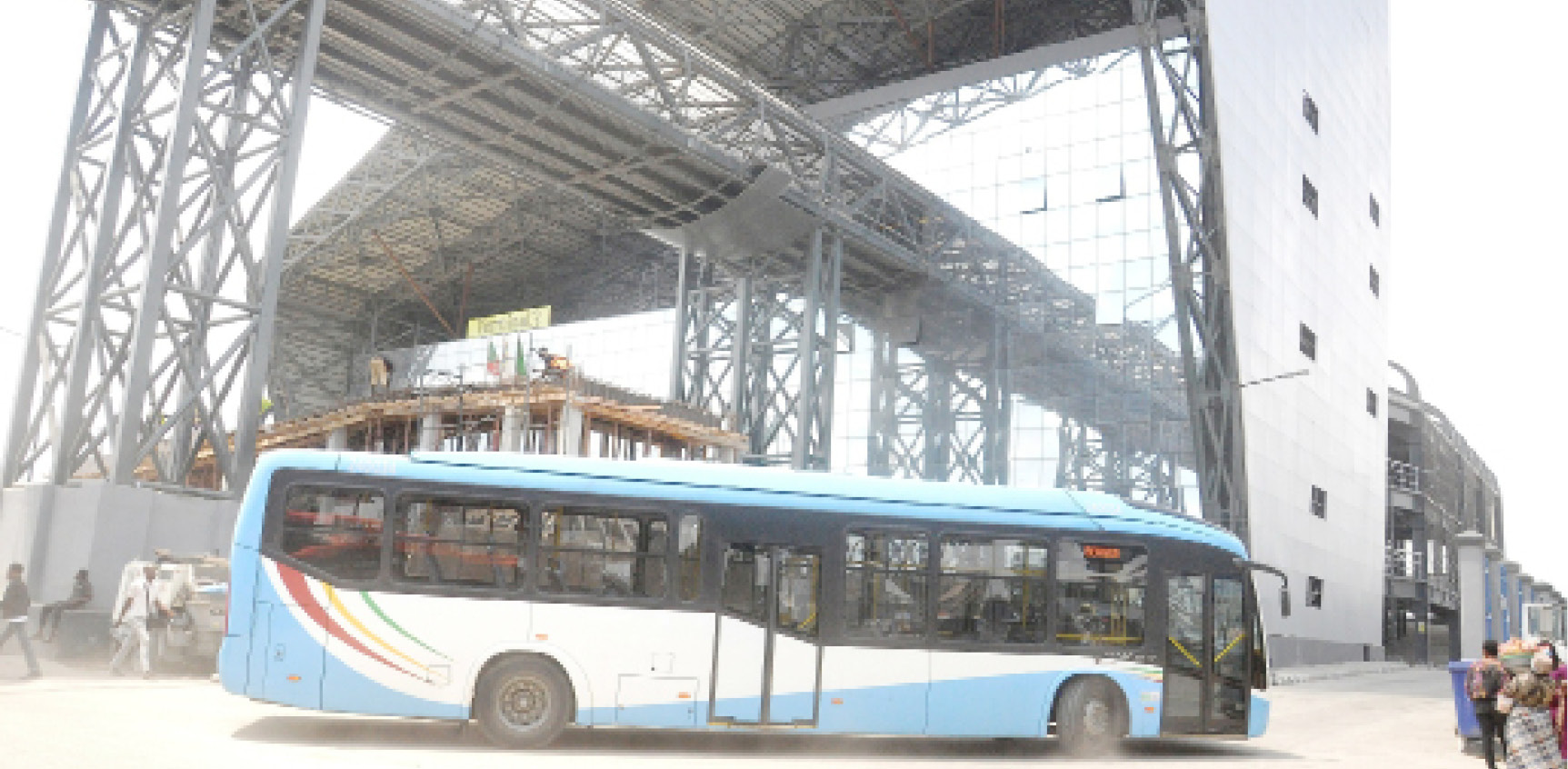Oshodi Transport Interchange Dismisses Claim Of Internal Crisis
The management of Oshodi Transport Interchange (OTI) in Lagos state has denied reports of crisis at the facility. OTI stated that there is imminent tension at the infrastructure, adding that it has not recorded any calamitous incident since 2019 it was established. This was made known in a press statement issued by Director, Operations and […]

Oshodi terminal intercharge in Lagos
The management of Oshodi Transport Interchange (OTI) in Lagos state has denied reports of crisis at the facility.
OTI stated that there is imminent tension at the infrastructure, adding that it has not recorded any calamitous incident since 2019 it was established.
This was made known in a press statement issued by Director, Operations and Maintenance,
Mr. Ade Ibileke, on Tuesday.
It partly read, “ The attention of the Management of the Oshodi Transport Interchange (OTI) has been drawn to a report published in a national daily recently on a review of service at the public transport infrastructure.
“The report erroneously dwelt on the imminent looming crisis at OTI, West Africa’s largest public transport infrastructure built to enable commuters to connect different parts of Lagos and Nigeria without difficulty.
“Contrary to the report, we unequivocally state that there is no tension, looming crisis or any trouble at the Interchange. Commercial activities and transport operations are going on in the interchange seamlessly.
“The interchange has been operating successfully since 2019 without any major incident including fire, robbery, armed attack and the facility was even successfully secured during the EndSARS crisis in 2020.”
Ibileke stressed that OTI remains peaceful, safe, and secure, with an unwavering commitment to providing excellent transport and commercial activities in a safe, conducive environment, as it added that more than 20,000 passengers have been using 45 bus operating companies.
He further said that the interchange had a rift with two other companies, but claimed that a resolution machinery has been instituted to address the challenge, hence no need for the media to wade in.
“OTI daily caters for over 20,000 passengers with about 45 bus operating companies [National Union of Road Transport Workers (NURTW) – 1, Association of Luxury Bus Owners of Nigeria (ALBON) – 13, Public Transport Owners of Nigeria Association (PTONA) – 18 and LAMATA Franchise bus operating companies (BOC) – 13] and over 70 businesses,” it said.
“The basis of the report is a commercial dispute between OTI, ALBON and PTONA, which have been operating at OTI for four consecutive years. This need not draw media attention because we have an internal dispute resolution mechanism solely set up to resolve such an issue. This kind of disagreement is not uncommon in an environment of multiple operators and the prevalent escalating prices in Nigeria.
“The increase in operating expenses and the cost of our critical inputs influenced our decision to review our service charge upward. For instance, the price of diesel has risen by 214 percent from N350 to N1,100; petrol by 255 percent from N169 to N600 and refuse disposal by 130 percent from N 650,000 to N 1.5 million.
“All these operating expenses do not include the costs of facility management (cleaning, cleaning materials, security, etc.), repairs and maintenance costs and other sundry, which have astronomically gone up in recent times.
“It should be noted that discussions commenced with all transport operators at the Interchange on the need to increase charges due to the escalating costs of inputs and increased operational expenses and the need to ensure that the Interchange is able to continue to render transportation and commercial services to the commuting public in a safe and secure environment.
“Some operators under PTONA have had the discussions and negotiations concluded and have resumed transport operations at the OTI. There are other negotiations ongoing with all business partners at the interchange to ensure sustainable and continued operations.”
